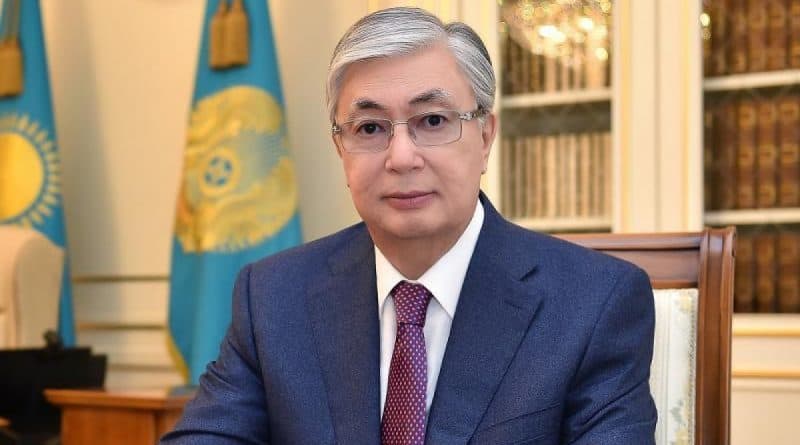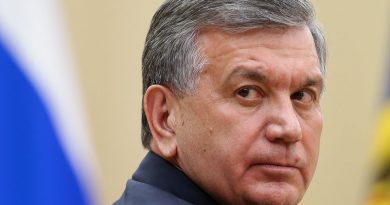Kazakhstan: New Human Rights Action Plan was developed
The Ministry of Justice of Kazakhstan has developed a new Plan for further action in the field of human rights and the rule of law. The draft Plan has been posted for public comment on the open regulations portal.
As stated in the explanatory note to the document, the new Plan was developed in accordance with the decree of the President of the country “On further measures of the Republic of Kazakhstan in the field of human rights” dated April 13, 2022.
Despite the fact that the Plan consists of 27 measures, it cannot be called a specific guide on how to improve the human rights situation in Kazakhstan and ensure the rule of law. Such plans have been adopted countless times, but the human rights situation is still deplorable. The torture of those detained during the January riots, the constant expansion of the list of political prisoners, the harassment of journalists, the orders of officials to kill media workers, the arrests and detentions of civil activists, and the attempts to pass undemocratic laws are clear evidence of this. It’s no coincidence that Kazakhstan receives demands from various international human rights organizations to take the path of democracy and improve the situation with human rights.
And the new Plan is not an attempt to really do something, but rather a show to divert the eyes of those very international human rights organizations.
Let’s take a closer look at it and compare it with the Human Rights Priority Action Plan approved by the government of Kazakhstan nine months ago.
So, in the new Plan, the steps to eliminate discrimination against women are prescribed as priority measures (in last year’s Plan, these steps were under the fourth paragraph). In particular, it’s prescribed that the relevant state bodies should develop mechanisms to prevent punishment against women and children, as well as submit proposals to the Interdepartmental Commission under the government of Kazakhstan on legislative activity on joining the International Labor Organization Convention No.190 on the elimination of violence and harassment in the labor practice.
The second paragraph in the new Plan includes measures to promote equal rights and opportunities for men and women (they were absent in last year’s Plan). In particular, it’s proposed to ensure the promotion of the commitments made to improve gender policy at the level of local authorities and to work out the issue of expanding the representation of women in public and business councils, as well as consultative and advisory structures at state bodies and the quasi-public sector (at least 30%).
The third paragraph includes the right to freedom of association (in the last year’s Plan, it was the fifth one): amendments to the legislation regulating the activities of public associations aimed at liberalizing the procedures for their creation and organization of their activities and further improving national legislation and law enforcement practice in relation to trade unions and resolution of labor conflicts, including taking into account the recommendations of the International Labor Organization. For comparison, from last year’s Plan: “to simplify the procedure for registering religious associations, and also, by February 2022, to expand the mechanisms for exercising the right of citizens to freedom of association.” Essentially it’s the same as last time.
The fourth paragraph of the new Plan covers human rights measures in relation to persons with disabilities (last year it was listed under the third number), namely, the development of proposals for non-financial incentives for business entities and organizations in the social and banking sectors, as well as providing other services to the population to create conditions for access by persons with disabilities.
The fifth paragraph includes human rights in the field of criminal justice, the execution of punishment and the prevention of torture and cruel treatment (number nine in last year’s Plan). In particular, it’s proposed: to develop measures to improve the procedure for considering citizens’ applications for parole from serving a sentence due to illness or disability; to update the list of diseases that are the basis for release from serving a sentence; to work out the issue of legislative consolidation of the principles and approaches of state regulation in the field of human rights protection, including in relation to human rights organizations, excluding excessive administration and control; to update the normative resolutions of the Supreme Court on the consideration of criminal cases in appeal, cassation, and newly discovered circumstances; to develop the proposals for improving the criminal and administrative legislation in terms of the correlation and imposition of penalties, the application of administrative penalties in the framework of the implementation of the Legal Policy Concept, taking into account the practice of application and recommendations of the norms relating to: imposing a ban on engaging in certain activities (including public), punishment for discriminatory actions within the framework of the article “Violation of the equality of man and citizen”; to make additions to the Administrative Code of the provisions of the article of the Criminal Code “Dissemination of knowingly false information”, taking into account cases where the actions don’t have signs of a criminally punishable act.
In addition, within the framework of this paragraph, it’s also proposed: to take measures to further improve legislation in terms of the limits and grounds for the use of physical force and special means; to develop the proposals on the methodology for investigating cases of torture in accordance with the Istanbul Protocol; to develop the proposals for alternative means of filing complaints with the exception of the possibility of restricting access to them by employees of institutions and ensuring complete confidentiality of complaints; to involve the civilian specialists in the process of training on human rights issues in educational institutions under law enforcement agencies; to attract small and medium-sized businesses to expand production and employment of convicts; to develop the proposals for the construction of 17 modern penitentiary institutions and the overhaul of buildings, premises and engineering and technical means of protection in institutions; to study the issue of introducing amendments and additions to the legislation regarding the transfer of the function of financial support of probation services from the republican budget to the local level; to exclude the function of the probation service to control the execution of sentences in the form of deprivation of the right to hold a certain position or engage in certain activities; to develop the anti-discrimination legislation, taking into account the International Convention on the elimination of all forms of racial discrimination; to create a Working group on the protection of human rights defenders, etc. So, there are 23 subparagraphs in total.
For comparison: in the last year’s Plan, this paragraph consisted of 9 subparagraphs: the adoption of an amnesty law, the development of a centralized automated database of the penitentiary system, the gradual transfer of the functions of medical support for convicts and remand prisoners from the system of the Ministry of Internal Affairs to the Ministry of Public Health, ensuring communication channels of institutions of the penitentiary system to display video data to higher and supervisory authorities, as well as further connection to the National Video Monitoring System in order to ensure the safety of convicts and minimize offenses, expand conditions for the employment of convicts and their social adaptation, etc.
Ensuring the rights of victims of human trafficking was in the second paragraph last year. In the new Plan, it’s in the sixth one. And improving the mechanisms of interaction with the UN treaty bodies is in the eighth paragraph (in last year’s Plan, it was the first one).
The only difference between the new Plan and the old one is the appearance of paragraph No.7 – “Human rights in relation to migrants, stateless persons and refugees”, which includes work on the further implementation of indicators for assessing the observance of human rights, based on the Global Indicators developed by the Office of the UN High Commissioner on human rights.
It’s noteworthy that the presidential decree, as well as the new rules, appeared on the day of the release of the country report on Kazakhstan concerning the observance of human rights, which is issued annually by the US State Department.
And in this report, alas, not everything is as rosy as in the ostentatious plans of the government of Kazakhstan.
“Unlawful killings by or on behalf of the government; torture by and on behalf of the government; arbitrary detention; political prisoners; serious problems with the independence of the judiciary; punishment of family members for offenses allegedly committed by an individual; serious restrictions on freedom of speech and the media, including violence or threats of violence against journalists; serious restrictions on Internet freedom; significant interference with the right to peaceful assembly and freedom of association; serious and unreasonable restrictions on political participation; serious corruption in the government; and significant restrictions on workers’ freedom of association,” the report notes about human rights violations in Kazakhstan.
Curiously, 2 days before the release of the State Department’s report, Kazakhstan held the first meeting of the High-Level Dialogue on Human Rights and Democratic Reform, which was attended by US Deputy Secretary of State for Civil Security, Democracy and Human Rights Uzra Zeya.
“Kazakhstan is a key partner of the US in the world and in the region. The opportunity to discuss with our Kazakh partners the issues such as human rights, including freedom of religion or belief, the fight against corruption, civil and political rights, law enforcement reform and security, testifies to the strength and maturity of our relationship. We may have different points of view, but we can always count on an honest and open discussion of these issues,” said Uzra Zeya, speaking at the meeting.
A little later, the authorities of Kazakhstan boasted that the United States fully supported the policy of Kassym-Jomart Tokayev and his reforms to further democratize the country’s socio-political life and build a “New Kazakhstan”, and also expressed their readiness to provide maximum assistance in efforts to modernize the country.
“The American side expressed support for the policy of the head of Kazakhstan in the political and socio-economic sphere and for the state institutions of the Republic of Kazakhstan in its further implementation. Kazakhstan and the United States intend to continue to support constructive cooperation and an expanded strategic partnership at the highest and high levels,” First Deputy Foreign Minister of Kazakhstan Akan Rakhmetullin said after the meeting.
Meanwhile, the international human rights organization Human Rights Watch also published its report on Kazakhstan as part of the World Human Rights Report 2022.
And, judging by the report, the human rights situation in Kazakhstan is bad. We will not quote the entire report in full, only a brief excerpt from it, which clearly confirms our conclusion made at the very beginning that everything, that is being done in Kazakhstan in the field of human rights, is just a show:
“The government continues to claim that it’s implementing human rights reforms, despite the lack of real improvements in the situation in this area. The authorities use overly broad accusations of extremism against critics, restrict the right to peaceful protest, suppress freedom of speech, and fail to address impunity for domestic violence and torture.”




